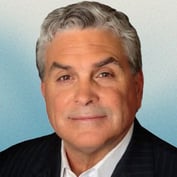What You Need to Know
- Advisory firms are itching to use testimonials before their compliance departments are ready.
- Firms that jump in before the Nov. 4, 2022, compliance date may become a target of SEC examiners.
- Before that date, firms must comply fully with either the new ad rule or the old one.
While the Securities and Exchange Commission’s advertising and marketing rule has been in effect since early May, compliance experts are cautioning advisors to tread carefully when using testimonials and endorsements before the rule’s Nov. 4, 2022, compliance date.
The use of testimonials and endorsements “before the firm is fully compliant and updating its compliance [policies and procedures] … that is a huge risk to the firm,” Amy Lynch, founder and principal of FrontLine Compliance, said on a recent webcast held by ThinkAdvisor.
That’s the message that the SEC was trying to send in its FAQ on the rule issued April 14, Lynch said, in which the agency noted that “they don’t want firms to partially comply with this rule” before next November.
Firms “shouldn’t be out there using testimonials and endorsements now,” Lynch warned. “And by that, I mean not using them before their compliance program is actually ready for it.”
Former SEC Chairman Jay Clayton said when the rule passed that the new “comprehensive framework for regulating advisors’ marketing communications recognizes the increasing use of electronic media and mobile communications and will serve to improve the quality of information available to investors.”
The new rule, Clayton said, provides for “an extended compliance period intended to provide advisors with a sufficient transition period, including to enable consultation with the Commission’s expert staff.”
Jim Lundy, a partner at Faegre Drinker in Chicago, agreed on the webcast that while he doesn’t “see a black and white yes or no answer” on whether advisory firms should start using testimonials and endorsements now, firms “do so at your own risk.”
That risk, Lundy continued, “is going to be heightened” under SEC Chairman Gary Gensler. “We’ve seen some very hawkish statements by the new chair … and we’ve seen hawkish statements by the new leadership in the [SEC] divisions. That’s who we’re going to be confronted with when examiners come out in the field to examine compliance with this rule.”
The SEC, Lundy continued, “has been touting for years now that they have a risk-based” approach to exams. “It seems to me that firms that are putting out endorsements and testimonials early … closer to the effective date versus the compliance date, may be viewed as higher risk, may be higher up on a priority list to be examined for compliance with the new rule.”
The bottom line, said Lundy: Don’t put the cart before the horse when considering the use of testimonials and endorsements. It “gets back to the importance of having that infrastructure, of compliance and supervisory policies, procedures and processes in place to support what you’re trying to accomplish.”
The firm’s compliance department, Lynch added, “is going to have to be reviewing any testimonial or endorsement that a financial advisor is proposing. It should go through your compliance department or hopefully firms may come up with certain templated language and disclosure for these testimonials and endorsements.”
Compliance vs. Marketing
Bates Group, a compliance consulting firm, already is “seeing tension between compliance and marketing desires at many of our firms,” Linda Shirkey, its compliance managing director, told me in mid-June.
The SEC’s April 14 FAQ “requires that compliance to the new rule is binary — that a firm either has to fully comply with the new rule, or continue complying with the old one until full compliance is in place (one assumes before Nov. 4, 2022),” Shirkey said.
“The compliance people want to have time to talk through the ramifications of the new rule — not just ‘do we want to change things,’ but more specifically, ‘if we want to change, how do we do that effectively?’”
For instance, Shirkey said that “if disclosures have to be in any ads sent via social media, how does one ‘layer’ the disclosures? On the other hand, the marketing departments want to be able to post testimonials today, and believe this will immediately increase sales.”
Bates is noticing two strategies as firms move ahead: first, “to implement compliance as quickly as possible for marketing reasons,” she explained, and the second “is to wait and see what comes out in additional FAQs and take time to make the decisions.”
Lynch of FrontLine agreed that the SEC likely will update the FAQ as the Nov. 4 compliance date nears. “I certainly do hope that they do. I suspect actually that [the FAQ] will get updated in various ways in the coming months” as firms prepare and have questions for SEC staff.








 June 15, 2021 at 09:59 AM
June 15, 2021 at 09:59 AM












 Copyright © 2024 ALM Global, LLC. All Rights Reserved.
Copyright © 2024 ALM Global, LLC. All Rights Reserved.